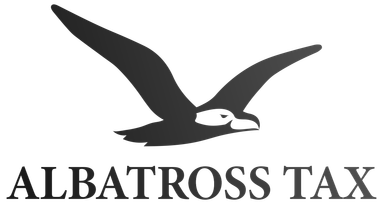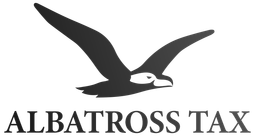Introduction Guide to Falkland Islands Taxation for Individuals
This guide is designed as a basic overview of Falkland Islands taxation for individuals. As always, if you have any queries, you should feel free to contact us. An initial query is always free of charge.
Introduction
The Falkland Islands has its own tax regime for income tax, it is fairly simplistic in its operation and allows for a basic tax deduction from wages but little else. Each individual who is tax resident in any calendar year is required to complete a tax return.
For those used to dealing with other tax authorities, such as HMRC, where much of the system is automated, this can seem a little strange and may lead to unexpected tax bills in some cases.
Tax Resident
If you spend more than 183 days in a calendar year physically in the Falkland Islands, you are tax resident here and must complete a tax return. You are also entitled to a full personal allowance and other reliefs. You are also taxable here on your worldwide income.
You may also be classed as tax resident if you are a permanent resident of the Falkland Islands but spent less than 183 days here. The rules surrounding this are fairly complicated and not covered in this guide. Get in touch if you think this could apply to you.
Non-Resident
If you spend less than 183 days in the Falkland Islands, you are classed as non-resident. You will only pay tax on your Falkland Islands income and your allowances are pro-rata based on your days.
You may choose to fill out a tax return if you wish, you may be entitled to a refund or you may be sent a bill for additional tax.
Whether you are likely to get a refund relies on a large number of factors and requires calculation. Albatross Tax provides this service specifically.
Personal Allowance & Tax Rates
The personal allowance is £15,000.
The next £12,000 of income is taxed at 21% and any income after that is taxed at 26%.
There is notionally a Medical Services Tax but this is taxed at 0%.
For non-residents the personal allowance is reduced based on the days spent in the Falkland Islands.
Payments on Account of Tax (POAT)
If you are a salaried employee then your employer will deduct POAT (Payments on Account of Tax) out of your wages. It is fairly simplistic in its operation and deducts tax as appropriate to your wages. For example, if you are paid monthly, you’d get a month of personal allowance.
You may be used to a system such as the UK’s PAYE (pay as you earn) which involves codes, computers and so forth, adjusts automatically so generally you pay the right amount.
POAT is a lot simpler, and hence there is a need to file a return and the need to get tax bills and repayments.
If POAT has been applied correctly (not always the case) and you’ve worked one job all year, you should broadly have paid the right amount of tax.
Filing and Payment Dates
Returns are issued in March and the deadline is 31 July, be sure to give yourself plenty of time, especially if you are submitting information to us.
Any tax payment is due on 1 October or 30 days after the assessment.
Returns are processed in the order they are received, anecdotally most people wait until close to the deadline. Whilst it mostly shows a simple “last minute” attitude, there is some method to this if you are likely to receive a tax bill, in that it may take some time to be processed (possibly later than the 1 October usual payment date).
If you expect a refund, you might want to think about filing early.
What income is taxable?
If you are tax resident then you must declare your worldwide income. This would include wages, self-employment, dividends, interest, rental income and gratuity payments. You cannot assume that just because something is not taxable in another country, it isn’t taxable in the Falkland Islands. If you are not sure, we can advise.
If you are non-resident, then only income from the Falkland Islands is taxable.
Benefits in Kind
You may receive various benefits from your employer such as the use of a car, accommodation, expenses paid, flights, travel, etc. These are subject to tax.
Double Taxation Agreement
The Falkland Islands has one Double Taxation Agreement with the UK. It has no others and this is unlikely to change in the near future.
You may therefore find yourself being taxed both in the Falkland Islands and another country. This is called double taxation.
Who has the right to tax what income can be quite complicated and it is not unusual to receive a bill from two countries and then have to work out which is correct (they both might be), who can tax what income and which tax bill can be offset against the other (if they can be).
Final thought
For many of us working in the Falkland Islands may be your first foray into working abroad or dealing with a tax office who are actually physically going to review your return. Most larger countries do much of this work automatically and it is unlikely that your tax affairs will be reviewed. It may also be the first time you’ve rented out your home, considered double taxation or had to think about your tax affairs.
The author of this guide spent many years as a salaried employee, his wages were via PAYE and (aside from working for HMRC) there was little interaction with HMRC. Tax was just automatically deducted.
Working in the Falkland Islands was his first experience of filling out a tax return since he worked in the USA in his early 20s.
Tax can be complicated and we are here to help! Contact us if you have any queries.

